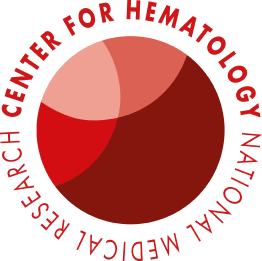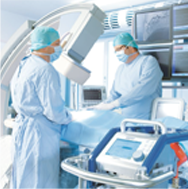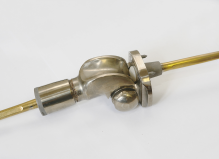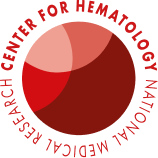- Official Information
Official Information
- A Word from Our Director
- About the NMRC for Hematology
- Structure
- Administration
- Departments
- History
History
- Our History
- All Directors of the NMRC for Hematology
All Directors of the NMRC for Hematology
- Our Awards
- Printed Publications of the NMRC for Hematology
- Gallery
- News
- Reviews
- Press Office
- Useful Resources
- Medical Tourism
- Consultative Doctors
- Clinical Departments
- Our Doctors
- Price List for Paid Medical Services
- High-tech Medical Care
- Preparation for Diagnostic Tests
Preparation for Diagnostic Tests
- Preparation instructions for a rectoromanoscopy
- Preparation instructions for low-dose computed tomography (CT) of skeletal bones without bolus contrast enhancement
- Preparation instructions for computed tomography (CT) of the thoracic cavity, brain, paranasal sinuses, orbits, osteoarticular apparatus, soft tissues of the neck without bolus contrast enhancement
- Preparation instructions for magnetic resonance imaging (MRI)
- Preparation instructions for a colonoscopy
- Indications for ultrasound examination of veins and arteries
- Preparation instructions for an excretory urography
- Preparation instructions for computed tomography (CT) of the thoracic cavity, brain, urinary system, vessels of the head and neck, aortography with bolus contrast enhancement
- Preparation instructions for computed tomography (CT) of the abdominal and pelvic organs with and without bolus contrast enhancement
- Preparation instructions for an esophagogastroduodenoscopy (EGD), bronchoscopy, laryngoscopy
- Preparation instructions for an ultrasound examination of the abdominal organs
- Indications and contraindications for echocardiography (ECHO-KG)
- Patient Stories
- Procedure for Issuing Medical Documentation
- Internal Regulations for Patients and Other Visitors
- Rules for Visiting Hospital Patients
- About
About
- Official Information
Official Information
- A Word from Our Director
- About the NMRC for Hematology
- Structure
- Administration
- Departments
- History
History
- Our History
- All Directors of the NMRC for Hematology
All Directors of the NMRC for Hematology
- Our Awards
- Printed Publications of the NMRC for Hematology
- Gallery
- News
- Reviews
- Press Office
- Useful Resources
- Patients
Patients- Medical Tourism
- Consultative Doctors
- Clinical Departments
- Our Doctors
- Price List for Paid Medical Services
- High-tech Medical Care
- Preparation for Diagnostic Tests
Preparation for Diagnostic Tests
- Preparation instructions for a rectoromanoscopy
- Preparation instructions for low-dose computed tomography (CT) of skeletal bones without bolus contrast enhancement
- Preparation instructions for computed tomography (CT) of the thoracic cavity, brain, paranasal sinuses, orbits, osteoarticular apparatus, soft tissues of the neck without bolus contrast enhancement
- Preparation instructions for magnetic resonance imaging (MRI)
- Preparation instructions for a colonoscopy
- Indications for ultrasound examination of veins and arteries
- Preparation instructions for an excretory urography
- Preparation instructions for computed tomography (CT) of the thoracic cavity, brain, urinary system, vessels of the head and neck, aortography with bolus contrast enhancement
- Preparation instructions for computed tomography (CT) of the abdominal and pelvic organs with and without bolus contrast enhancement
- Preparation instructions for an esophagogastroduodenoscopy (EGD), bronchoscopy, laryngoscopy
- Preparation instructions for an ultrasound examination of the abdominal organs
- Indications and contraindications for echocardiography (ECHO-KG)
- Patient Stories
- Procedure for Issuing Medical Documentation
- Internal Regulations for Patients and Other Visitors
- Rules for Visiting Hospital Patients
- Science
High-tech medical care is part of specialized medical care and includes the use of new, complex and/or unique treatments, as well as resource-intensive treatments.
ExpandCollapseHigh-tech medical care is provided in accordance with the procedures and standards for the provision of medical care approved by the Ministry of Health of the Russian Federation and National Clinical Guidelines.
High-tech medical care is provided at the NMRC for Hematology in both day and round-the-clock hospitals.
The NMRC for Hematology accepts patients over the age of 18 from foreign countries. Medical assistance to citizens of foreign countries is provided in accordance with the Decree of the Government of the Russian Federation No. 186 dated 06.03.13.
Hospitalization at the NMRC for Hematology is carried out by the decision of the Medical Commission of the NMRC for Hematology. Referral to the Medical Commission is drawn up by the attending physician of the Polyclinic Department of the NMRC for Hematology.
The NMRC for Hematology provides high-tech medical care to citizens of Russia, included and not included in the basic program of compulsory medical insurance in accordance with the Decree of the Government of Russia No. 1403 of 19.12.16 "On the Program of state guarantees of free medical care to citizens for 2017 and for the planning period of 2018 and 2019", in accordance with the list of types of high-tech medical care rendered at the NMRC for Hematology within the established volumes.
The list of types of high-tech medical care in accordance with the profile of medical care provided at the Federal State Budgetary Institution "NMRC for Hematology" of the Ministry of Health of the Russian Federation:
- Hematology
- Neurosurgery
- Oncology
- Cardiovascular surgery
- Traumatology and orthopedics
The provision of high-tech medical care is carried out via a referral coupon.
Порядок получения талона-направления на высокотехнологичную медицинскую помощь.
List of types of high-tech medical care provided at the NMRC for Hematology
Hematology:
![]()
- complex conservative treatment and reconstructive surgery for deformities and injuries of the limbs with correction of the shape and length of the limbs in patients with hereditary and acquired deficiencies of VIII, IX factors and other blood coagulation factors (including the presence of inhibitors to coagulation factors), Gaucher disease;
- complex treatment, including polychemotherapy, immunotherapy, transfusion therapy with blood and plasma preparations, methods of extracorporeal exposure on blood, remote radiation therapy, surgical methods of treatment for aplastic anemias, aplastic, cytopenic and cytolytic syndromes, agranulocytosis, disorders of plasma and thrombocytic hemostasis, acute radiation sickness;
- intensive therapy, including methods of extracorporeal exposure on the blood in patients with porphyria.
Neurosurgery:
![]()
- microsurgical, endovascular and stereotactic interventions using a non-adhesive composition, microcoils(5 or more coils) or flow stents in pathology of cerebral and spinal cord vessels, richly blood-supplied tumors of the head and brain;
- microsurgical, endovascular and stereotactic interventions using adhesive compositions, microemboli, microcoils (less than 5 coils), stents for pathology of cerebral and spinal cord vessels, richly supplied tumors of the head and brain, and intracerebral and intraventricular hematomas.
Oncology:


- video endoscopic intracavitary and video endoscopic intraluminal surgical interventions, interventional radiological interventions, minimally invasive organ-preserving interventions for malignant neoplasm, including in children;
- reconstructive plastic, microsurgical, extensive cytoreductive, extended-combined surgical interventions, including with the use of physical factors (hyperthermia, RFA, PDT, laser and cryodestruction, etc.) with malignant neoplasm, including in children;
- combined treatment of malignant neoplasms, combining extensive surgical interventions and anti-tumor drug treatment, requiring intensive, supportive and corrective therapy;
- complex and high-dose chemotherapy (including epigenomic therapy) of acute leukemia, high-grade lymphomas, relapses and refractory forms of lymphoproliferative and myeloproliferative diseases, including in children. Complex, high-intensity and high-dose chemotherapy (including targeted therapy) of solid tumors, relapses and refractory forms of solid tumors in children;
- complex treatment with the use of standard chemotherapy and (or) immunotherapy (including targeted drugs), radiation and afferent therapy for primary acute and chronic leukemias and lymphomas (with the exception of high-grade lymphomas, chronic myeloid leukemia in the blast crisis stage and in the acceleration phase), relapses and refractory forms of solid tumors.
Cardiovascular surgery:
![]()
- coronary myocardial revascularization using angioplasty in combination with stenting in ischemic heart disease.
Traumatology and Orthopedics:
![]()
Transplantation:


- bone marrow transplantion;
 Anti-corruption
Anti-corruption Helpline of the Ministry of Health of the Russian Federation on Anti-corruption Issues
Helpline of the Ministry of Health of the Russian Federation on Anti-corruption Issues Independent assessment of the quality of conditions for the provision of services by medical organizationsOfficial website of the Federal State Budgetary Institution "NMRC for Hematology" of the Ministry of Health of Russia © 2025Site support - ADDU
Independent assessment of the quality of conditions for the provision of services by medical organizationsOfficial website of the Federal State Budgetary Institution "NMRC for Hematology" of the Ministry of Health of Russia © 2025Site support - ADDUWe use cookies
By staying on this website, you accept the privacy policy and agree to the terms of use of cookie files.
×Agree - Official Information












